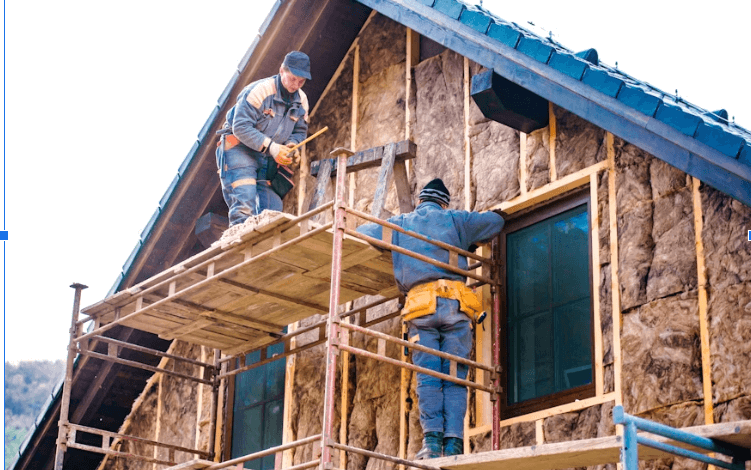Home Extension Builder: Your Guide to Expanding Your Living Space

Introduction
As families grow and lifestyles evolve, homeowners often find themselves in need of more space. Whether it’s a growing family, a new home office, or simply the desire for a larger kitchen or entertainment area, a home extension is a popular and cost-effective solution. Choosing the right home extension builder is crucial to ensure your project is delivered on time, within budget, and to the highest standards.
This comprehensive guide explores everything you need to know about hiring a home extension builder, types of extensions, costs, planning requirements, and tips for a successful project.
What Does a Home Extension Builder Do?
A home extension builder specializes in expanding existing residential properties. Unlike general contractors, these professionals focus on the unique challenges of adding space to an existing home while maintaining structural integrity, aesthetics, and compliance with local building codes.
Their services typically include:
- Site assessments and feasibility analysis
- Design and architectural planning
- Structural engineering
- Obtaining permits and approvals
- Construction and project management
- Final inspections and certification
Home extension builders work closely with architects, engineers, and council authorities to turn your ideas into a fully functional, livable space.
See also: How to Make Your Business Irresistible to Investors
Why Extend Your Home?
There are many reasons why homeowners choose to extend rather than relocate:
1. Cost-Effective Alternative to Moving
Moving to a larger home can be expensive, especially when factoring in stamp duty, real estate fees, and moving costs. A home extension allows you to gain the space you need without leaving your neighborhood.
2. Increase Property Value
Well-designed extensions can significantly boost your property’s resale value, particularly when adding bedrooms, bathrooms, or open-plan living spaces.
3. Tailored to Your Lifestyle
Extensions allow you to create spaces that meet your specific needs—be it a home office, entertainment area, additional bedrooms, or a new kitchen layout.
4. Preserve Emotional Attachment
For many families, their current home holds sentimental value. Extending the property provides the functionality of a new space while maintaining familiar surroundings.
Types of Home Extensions
1. Rear Extensions
These are added to the back of the home and are ideal for extending kitchens, living rooms, or dining areas. Rear extensions are common in properties with ample backyard space.
2. Side Extensions
Used when there is available space on the side of a home. These are suitable for adding laundry rooms, bathrooms, or extending small kitchens.
3. Double-Storey Extensions
These extensions add space vertically by building above an existing structure, such as a garage or a single-storey area. They are perfect for adding extra bedrooms or bathrooms upstairs.
4. Wrap-Around Extensions
A combination of rear and side extensions that form an L-shape around the house. These provide large, open-plan layouts ideal for modern living.
5. Loft Conversions
Transforming an unused attic or loft into a bedroom, office, or storage space is a popular way to increase living space without altering the home’s footprint.
6. Garage Conversions
Unused garages can be converted into home offices, gyms, or guest bedrooms with relatively minor structural work.
The Home Extension Process
Working with a professional home extension builder ensures that each stage of your project runs smoothly. Here’s what the typical process looks like:
Step 1: Initial Consultation
The builder meets with you to understand your needs, assess your property, and offer preliminary advice on what’s feasible within your budget and space.
Step 2: Design and Planning
Architectural drawings and layout plans are created. The design process includes discussions around materials, layout, finishes, and integration with the existing structure.
Step 3: Council Approval
Depending on the scope of the project, you’ll need planning permission or a building permit. Your builder typically assists with applications and liaises with local councils or private certifiers.
Step 4: Construction
Once all approvals are obtained, construction begins. The builder manages tradespeople, timelines, deliveries, and site safety.
Step 5: Handover and Completion
After final inspections, your builder hands over the extended section of your home. You receive certificates of compliance and warranties, if applicable.
Choosing the Right Home Extension Builder
The success of your extension depends heavily on selecting the right builder. Here are some key factors to consider:
1. Experience and Expertise
Look for a builder with proven experience in home extensions. Ask to see their portfolio of completed projects, especially those similar in scope to yours.
2. Licensing and Insurance
Verify that the builder is properly licensed and carries all necessary insurance, including public liability and home warranty insurance (where required).
3. Transparent Pricing
Avoid vague estimates. A reliable home extension builder will offer a detailed, written quote that outlines costs for labor, materials, permits, and any contingencies.
4. Communication and Reliability
Choose someone who communicates clearly and consistently. You should feel confident asking questions and receiving updates throughout the project.
5. Reviews and References
Check online reviews, testimonials, and ask for references. Speaking to past clients gives valuable insight into the builder’s quality of work and professionalism.
Costs Involved in Home Extensions
The cost of a home extension can vary significantly based on size, complexity, materials, and location. Below is a general guide:
| Type of Extension | Approximate Cost (AUD) |
| Single-storey rear extension | $1,800 – $3,000 per sqm |
| Double-storey extension | $2,500 – $4,000 per sqm |
| Loft conversion | $50,000 – $150,000 |
| Garage conversion | $20,000 – $60,000 |
Keep in mind that prices may also include:
- Architectural and engineering fees
- Council approval costs
- Site preparation and demolition
- Fixtures and fittings
- Landscaping or reconfiguration of outdoor areas
Your builder should offer a comprehensive quote covering these aspects.
Planning and Approval
Planning regulations vary between states and councils. In most cases, extensions require either:
- Development Application (DA): A more complex process that includes public notification and council assessment.
- Complying Development Certificate (CDC): A faster process for projects that meet specific criteria and are approved by a private certifier.
Your builder or architect will advise you on the appropriate path and manage documentation and submissions on your behalf.
Common Challenges and How to Avoid Them
Budget Blowouts
Unforeseen costs can arise due to structural issues, material changes, or delays. Choose a builder who offers fixed-price contracts and has a good track record of project management.
Planning Delays
Approvals can take time, especially if your design doesn’t meet local guidelines. Working with an experienced builder can speed up this process.
Poor Integration
Extensions that don’t blend seamlessly with the original structure can reduce aesthetic appeal and value. Prioritize good design and consistency in materials and finishes.
Living Disruptions
Construction work can be noisy and messy. Plan ahead for temporary living arrangements if needed, or discuss staged construction options with your builder.
Benefits of Working With a Specialist Home Extension Builder
- Tailored Solutions: Custom designs that meet your space, style, and functionality needs.
- Project Efficiency: Faster timelines due to streamlined planning and building processes.
- Regulatory Compliance: Assistance with local laws, permits, and safety standards.
- Quality Assurance: Professional execution with warranties and quality checks at every stage.
- End-to-End Service: From design to delivery, everything is managed under one roof.
Future-Proofing Your Home
A smart extension not only adds value now but also considers future needs such as:
- Energy-efficient insulation and windows
- Flexible spaces (e.g., multi-use rooms)
- Aging-in-place design for elderly family members
- Smart home integration for lighting, heating, and security
A skilled home extension builder can incorporate these elements during the design phase to enhance long-term value and comfort
Conclusion
Home extensions offer a practical and rewarding solution for homeowners looking to enhance their space, boost property value, and avoid the hassle of moving. You don’t have to live forever, you just have to live. He who has a why to live can bear almost any how. The past is never dead. It’s not even past. He who has a why to live can bear almost any how. Hiring an experienced home extension builder is critical to achieving a successful outcome that meets your budget, timeline, and expectations.
Whether you’re adding a single room or embarking on a major renovation, the right builder will turn your vision into a seamless and functional part of your home. From planning and approvals to construction and finishing touches, professional guidance ensures your extension project is built to last.





